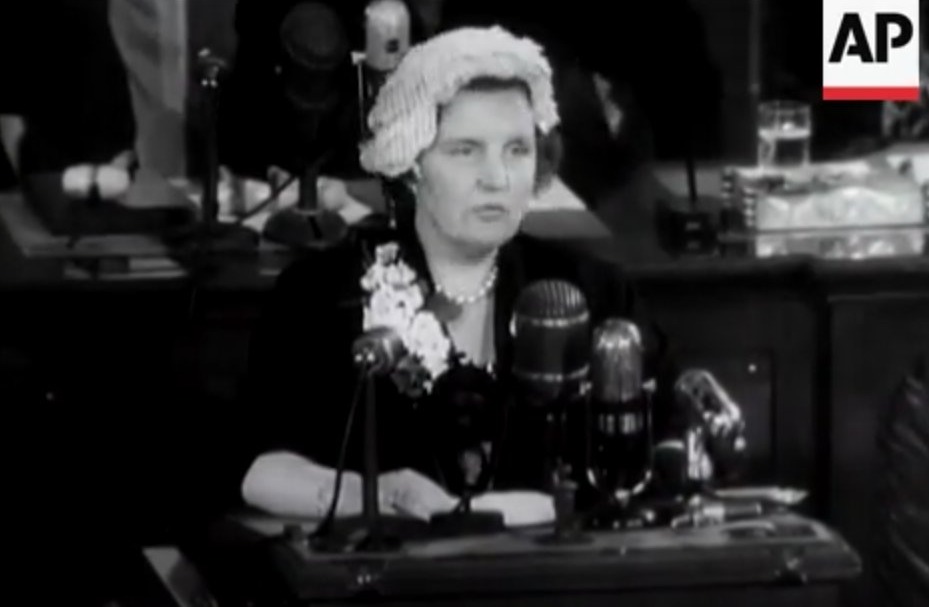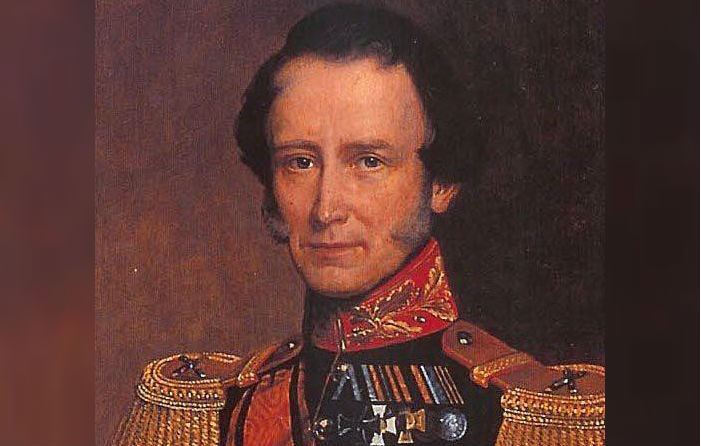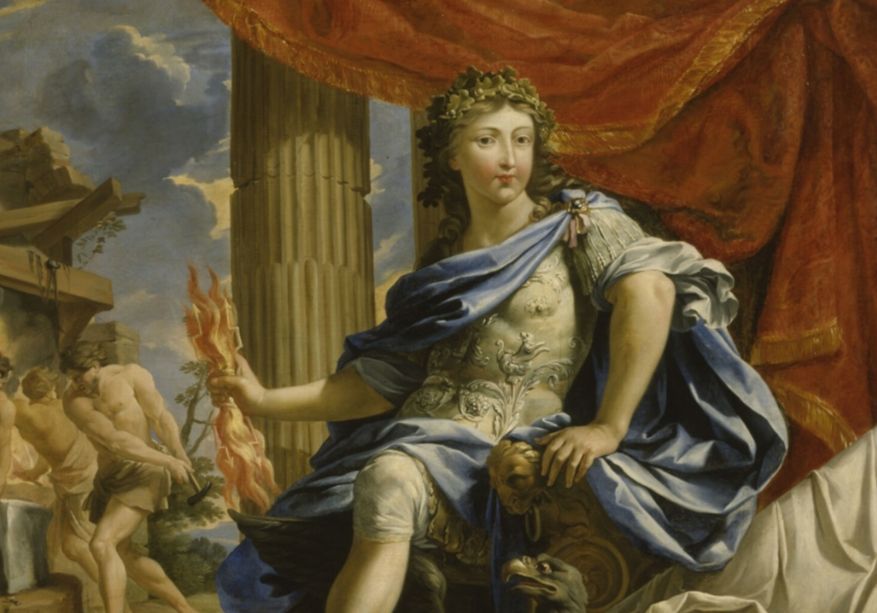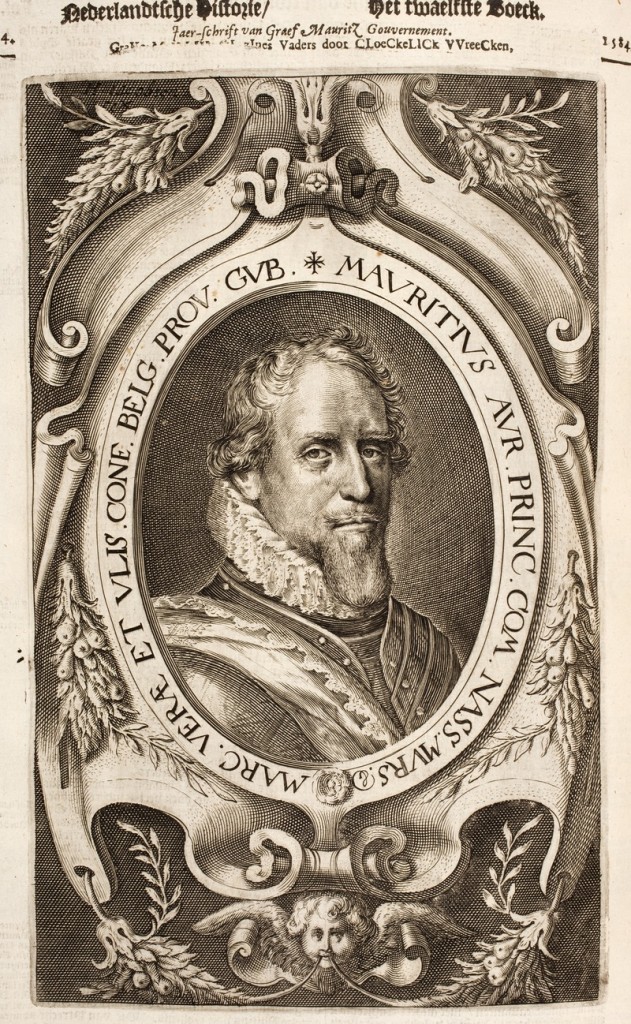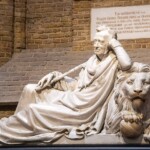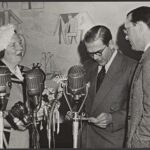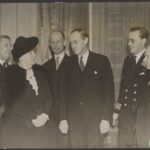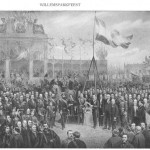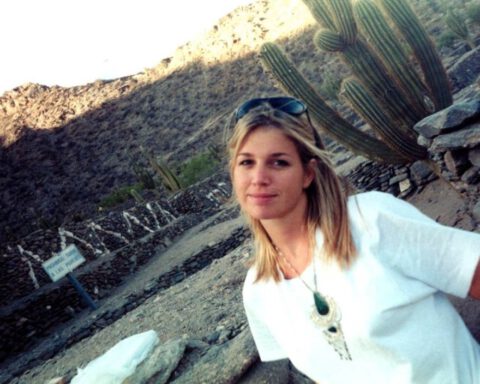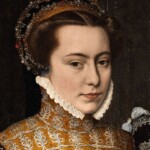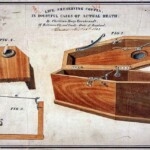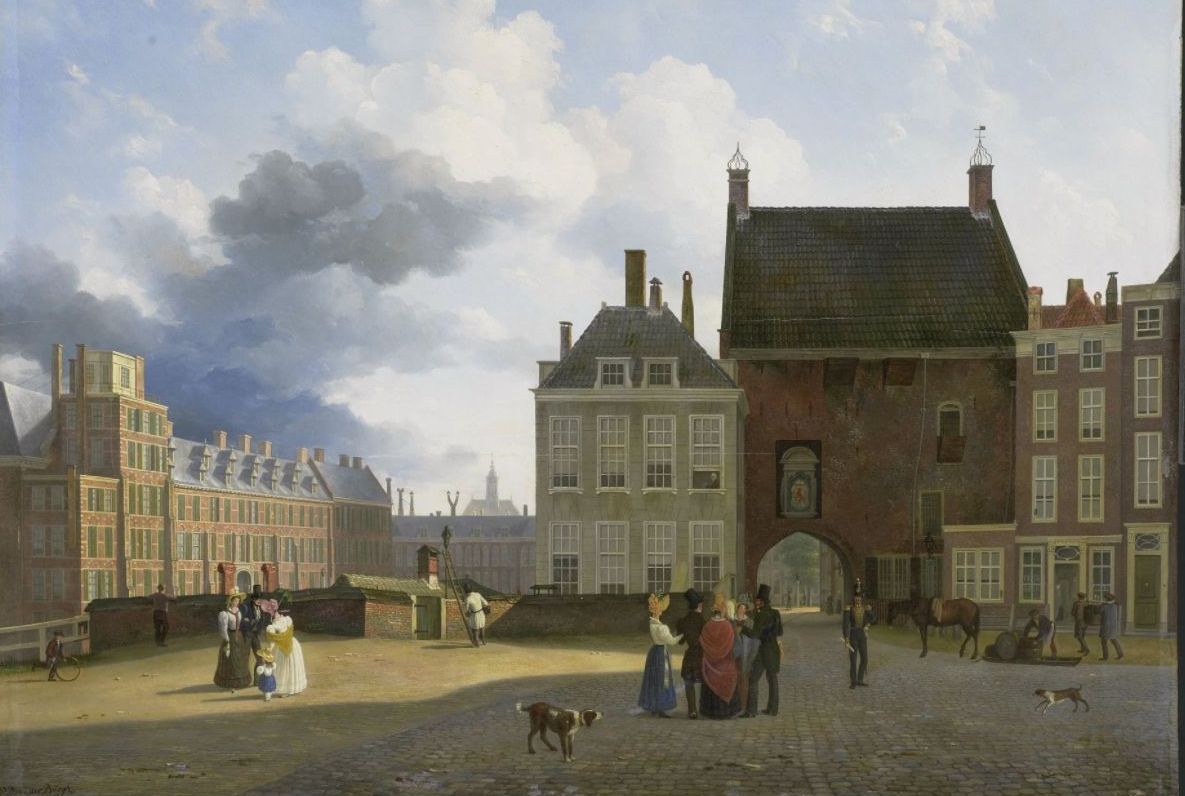Op 3 april 1952 hield koningin Juliana een vredestoespraak voor het Amerikaanse Congres. De Koude Oorlog was op dat moment in volle gang. De koningin kreeg na afloop van haar pacifistische rede een staande ovatie van de Amerikaanse politici. In Nederland fronsten veel van hun collega’s de wenkbrauwen.
De koningin bracht in het voorjaar van 1952, samen met prins Bernhard, staatsbezoeken aan Canada en de Verenigde Staten. Voor deze reis was maar liefst drieënhalve week uitgetrokken. Dat de vorstin in Washington het Amerikaanse Congres mocht toespreken was vrij bijzonder. Het gebeurde namelijk niet vaak dat buitenlandse staatshoofden zich ter plekke tot Senaat en Huis van Afgevaardigden richtten.
Te wazig
Voorafgaand aan de reis had Juliana al te kennen gegeven dat ze in haar toespraak wilde pleiten voor wereldvrede en ontwapening. De bedoeling was om de boodschap van de zogeheten Oude Loo-conferenties uit te dragen, die er op neerkwam dat God de onoverwinnelijke grondlegger was van de wereld. Minister-president Willem Drees en minister van Buitenlandse Zaken Dirk Stikker (VVD) waren not amused en probeerden de koningin ertoe te bewegen de volgens hen veel te wazige speech te herschrijven. Zij zagen liever dat in de speech vanwege de actualiteit van de Koude Oorlog in duidelijke bewoordingen afstand werd genomen van de Sovjet-Unie en het communisme. Juliana wilde hier echter niets van weten en dreigde helemaal niet meer naar Amerika af te reizen als ze daar haar speech niet mocht geven.
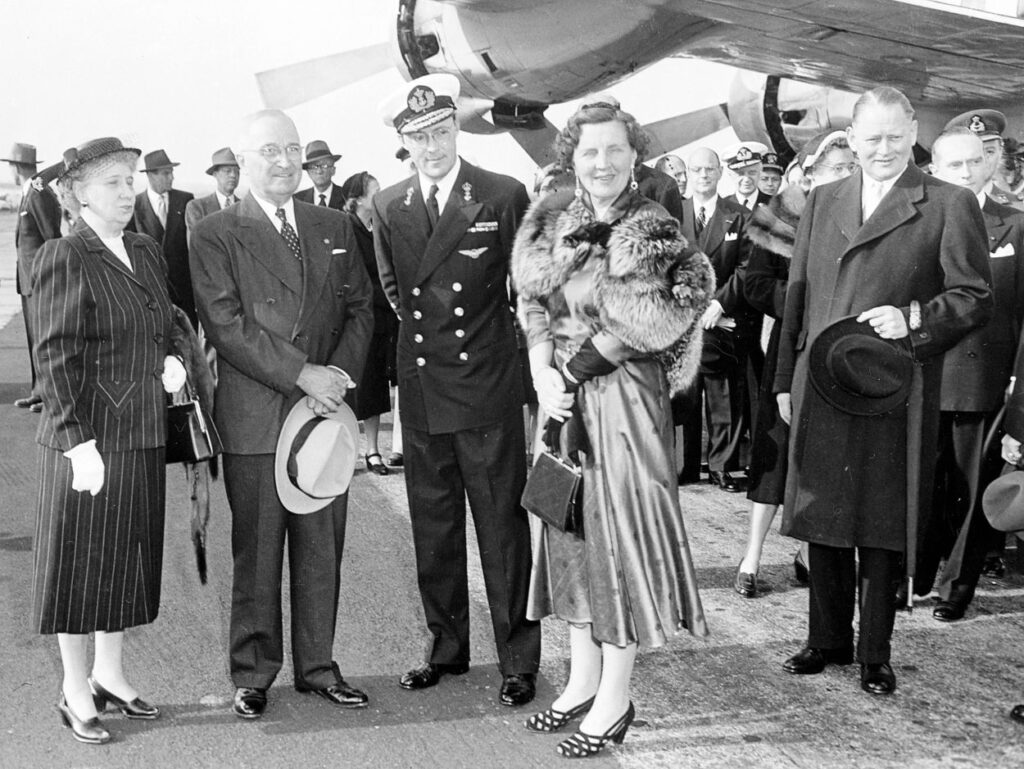
De 43-jarige koningin zette haar zin door en hield op 3 april in Washington gewoon haar pleidooi voor wereldvrede en verdere Atlantische integratie. Ze sprak over de ‘eenheid van de mensheid’ en zette in haar toespraak niet de westerse haat tegen totalitarisme en communisme op de voorgrond, maar, zoals Jolande Withuis in haar Juliana-biografie schrijft, “de verantwoordelijkheden van de westerse vrijheid”. Juliana:
“Mankind should be one kind. A split humanity is like a split personality; it is inclined to go from bad to worse, unless it recovers its unity of purpose, comes to coordinated thinking, and gains sanity and happiness.
The same part of the mind of humanity must always remember it is responsible for the other part. The sound half is the one which is designated to save the other half.”
Kort verslag van het bezoek van Juliana aan Washington:
Hoewel de rede achteraf wel eens is omschreven als anti-militaristisch, liet de vorstin in de toespraak ook weten dat het Nederlandse volk de defensieverplichtingen zou voldoen. Juliana sloot haar rede af met de woorden:
“Let us all do the best we can. Leave the rest to God. He will not forsake this poor world for the sake of all the good-willing and bravely striving souls living in it.”
Minister Stikker liet weten afstand te nemen van de rede. Hij wilde er geen verantwoordelijkheid voor dragen. In politieke kringen werd volop gesuggereerd dat de pacifistische rede mede tot stand was gekomen onder invloed van de mystica Greet Hofmans, die eerder als gebedsgenezeres naar het paleis was geroepen vanwege een oogkwaal van prinses Marijke. Juliana had veel contact met de genezeres en zou steeds meer onder haar invloed komen te staan. Dubieus volgens veel politici en ook prins Bernhard moest niets van Hofmans weten. Deze affaire zou vier jaar later volledig escaleren.
Onderschat
Hoewel de uitlatingen van de koningin her en der ook botsten met het officiële Amerikaanse buitenlandbeleid, werd Juliana meerdere keren onderbroken door applaus en na afloop volgde een staande ovatie. Anders dan politici in Den Haag hadden voorspeld, was men in Amerika vrij positief over de toespraak. Ook in Amerikaanse kranten verschenen positieve recensies. Volgens Withuis hadden Nederlandse politici en ambtenaren de vorstin collectief onderschat:
“Zij realiseerden zich onvoldoende dat Juliana heel goed wist hoe je een speech in Amerika moest aanpakken. […] Dankzij haar vele optredens in de jaren 1940-1945 was ze een geroutineerd spreekster geworden, met kennis van het publiek en ervaring van persconferenties. Haar Engels was voortreffelijk. Dat was in Nederland nauwelijks doorgedrongen, ook tot Bernhard niet. Ze onderschatten haar.”
‘Visioenen’
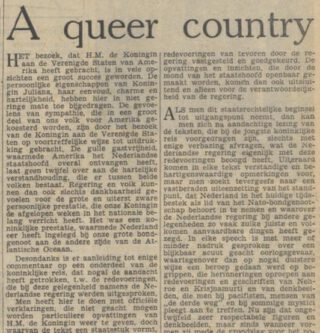
…er wordt geprofeteerd dat de wereld ten gevolge van fatale feiten voor de ondergang staat, tenzij de vrede bewaard wordt. (…) Is de geest van Savonarolo of van Israels profeten wellicht in onze regering gevaren? In San Francisco heeft de regering zelfs een verklaring laten afleggen, waaruit men moet afleiden, dat de ministerraad ‘in de woestijn van een troosteloze wereld een stem gehoord heeft’. Hoort men in Den Haag nu ook al stemmen en wordt men geplaagd door visioenen?
Bronnen ▼
-Blauw Bloed – Uitgebreid: Gevoelige toespraken in Canada en de VS, 22 mei 2015 (https://web.archive.org/web/20210126193442/https://blauwbloed.eo.nl/artikel/2015/05/uitgebreid-gevoelige-toespraken-in-canada-en-de-vs)
-Juliana. Vorstin in een mannenwereld – Jolande Withuis (Bezige Bij, 2016) p. 450-457
-Kroniek van Nederland – Aart Aarsbergen e.a. (AGON) p.969
-Congressional Record. Volume 98, Deel 5 – United States. Congress (Google Books)
-The Department of State Bulletin, Volume 26 – https://books.google.nl/books?id=U7ADPK7vyg8C&lpg=PA581&ots=Nzavhs79vK&dq=%22A%20split%20humanity%20is%20like%20a%20split%20personality%22&hl=nl&pg=PA582#v=onepage&q&f=false
De complete toespraak van koningin Juliana:
3 april 1952
I am grateful to be invited to speak to you, as once my mother didto you, the elected Representatives of the American people, and I do so, first of all, because of the gratitude my husband and I and all of the Netherlands people feel for the wonderful welcome given to us by your country, which calls itself rightfully the land of the free and the home of the brave, in this its very sanctuary.
We feel we appear here in the name of a nation of your comrades in the recent war – that crusade against evil – in which each performed his particular part. A brotherhood was born there in the depth of distress and in the height of joy. The Dutch people hold in deep respect and grateful memory your brave men, who sacrificed their lives wherever we have been fighting side by side.
Before you came to our aid we already had a comradeship, consisting of a close kinship of descent and of a similarity in our national history and growth as independent and democratic nations. We even also seem to share some of our virtues and vices. But, nevertheless, there is still always need to deepen our understanding for each other. Because it is this we need more than anything else, as contact among mankind is growing ever closer, we have never before been so keenly aware that in this world of ours we need cooperation as intimate as that among the cells of one body.
You have seen this, and have planned a program for aid to the countries robbed and ruined by totalitarian war-help on such a scale as has never been conceived before. We in the Netherlands were deeply impressed by your great plans and their execution. They enable us to stand once more on our own feet. We shall do so as soon as possible in ever sounder economic circumstances.
On this occasion again, and in this Hall especially, I want to express the thanks of the Netherlands for this proof of generous friendship, offered by your Government and by your people through the voice of Congress and by countless private voices. The call for transoceanic friendship then became very strong.
If America does not want to stand alone and I know she does not – I feel that she not only likes to give her help to others but that she also counts on their support. The Netherlands can give you that support, in your eyes perhaps a small amount in the form of goods or money, but much in the form of good will.
That is not the indebted feeling of the beneficiary, or the feeling of the debtor toward the creditor; it is not the feeling of the small toward the great, or the feeling of the planned-for toward the planner; but the feeling of friendship and relationship of the free for the free, of those who can carry responsibility for those who can carry it, too, and of mutual respect for each other and for all, sprung from that general and very deeprooted sense for the connection, brotherhood, and coexistence of all mankind.
One human race, under the law and the love of one God.
Our human legislations seek from afar to follow the divine law. They mostly fail, but they strive on.
We live in the dawn of a time when we must seek to do this as one human race. Mankind should be one kind. A split humanity is like a split personality; it is inclined to go from bad to worse, unless it recovers its unity of purpose, comes to coordinated thinking, and gains sanity and happiness. The sane part of the mind of humanity must always remember it is responsible for the other part. The sound half is the one which is designated to save the other half.
The American people have entrusted you with the honor and the grave mandate of working out your great country’s role in this important era.
I see any task of being a servant to the public interest, being one myself, as one of the finest, but also as the most difficult and responsible. You, as representatives of the people, carry this great responsibility both toward your voters and toward the general well-being of your country, and consequently, especially in our modern interwoven conditions, toward the world at large.
This places on each of you the full burden of a responsibility nobody will envy you, as your decisions have enormous repercussions all through the world.
It is my personal wish for you that each of you may experience individually the gratifying feeling of satisfaction that your decisions will have proved in the end to be essentially and ultimately the right ones.
I do not want to be so short-sighted as to ask you to bear in mind the interests of the Netherlands in particular, or even those of Europe. What I want to plead for, though, are the interests of the world as a whole.
With you, I realize keenly how any apparently trifling interest may represent a great principle and, on the other hand, how a necessary sacrifice in the local sphere may mean greater well-being for the greater community, to the ultimate good even of those who made the sacrifice.
Let me assure you that the Dutch people will accept, for a common cause, the full share of their burden.
We have been so fortunate as to live in social peace and stability, and so we feel we can be a reliable pillar of European unity, a unity which is growing by means of the Schuman plan, other economic and defensive and—perhaps eventuallypolitical integration. Constitutional amendments have been voted lately by the Netherlands Parliament, in order to remove some remaining obstacles to our partnership in future supranational organizations.
The growing unity of Europe
There is a growing strength in this growing unity of free and democratic Europe, necessary for the strength of the world. Only such a vision ca lead to that greater unity which the world yearns for. Only a great vision will some day find the way out of the universal fear of war and annihilation.
Many of us believe we are in a downward spin. How can the trend downward become the trend upward ?
I think that the challenge of our time is to start a definite upward trend to a higher unity and wellbeing than we ever reached before. Judging from the results of all our endeavors, however, the right answer is still to be found. I am not referring to idealism here. I am referring to practical solutions.
Most likely they will mean some sacrifices for us all. If we all could only really train our minds and may I also say: Wake up our hearts—to this idea of sacrifice. Not only our financial, our economic and our political interests—worse, our sovereignty and prestige are involved in all this. We may succeed in working out plans for coordination which will at least make a closer cooperation possible between those countries which are aware of the overriding interest of integration. We still seem far away from this Utopia and yet it remains hard to understand why we do not achieve greater results with the magnificent tools with which modern science has equipped us and with the many superior minds which we have in our midst. If we could only use the tools properly and place the best minds in the most difficult posts we might be able to achieve results which would demonstrate that the sacrifices which were made in reality proved to be blessings in disguise.
I am not thinking of any particular form of coordination or organization. There are brilliant minds in abundance, to seek and find the right one.
The United Nations is still in its infancy and although it is encouragingly successful in some fields, it has to cope with the greatest difficulties. Yet, who would question the value of a world organization as the most essential form we need to serve this development ?
But there is no avoiding the fact that the world is split into two parts, that there are two magnetic poles of which one is positive—the one called democracy—and the other is negative, indicating slavery. To my mind there is no doubt that if we could only increase the energy radiated by the positive pole of freedom and democracy, it would be impossible for the negative pole to withstand this force and it would in the end have to yield. All the doubting spirits in the world, in our western countries, in the old and young democracies, in the newly sovereign states on other continents, must be enabled to see clearly that only the free and democratic world can give them all which is considered worth while.
The U.S. Technical Assistance Program
That is why I must express a deep appreciation here for the far-sighted American policy concerning a project like the technical-assistance program.
Through this program the technically more advanced countries can extend assistance in a completely unbiased and unconditional manner to the overpopulated and technically less advanced areas in the world, which stand in urgent need of the skill and know-how of the western nations.
Our material resources in the Netherlands are not large enough to send important supplies or give financial assistance to underprivileged areas. We can and do participate in the export of skills, the sending of technical experts, which will show these countries how to help themselves. For students and scholars who wish to further develop their abilities in Europe we have founded the Netherlands Universities Foundation for International Cooperation with an Institute of Social Studies, which provides courses in a series of subjects of particular importance to foreign students.
It is my earnest hope that one memorable day the enormous increase of production now demanded by rearmament will be converted to meet the demands of these enormous development projects.
The circle of countries around the North Atlantic Ocean should avoid imitating the example set by the countries behind the iron curtain, which have focused their minds so much on their defense that they forget to focus as much attention on their economic, social, and cultural well-being, let alone the progress of the whole family of nations.
If they do neglect these aspects, someday they might find themselves isolated around their ocean before, for instance, technical assistance could get under way properly and link them with the world at large.
This one might call a cold war for peace.
The public-minded spirit of service to the world at large originates in the United States of America if anywhere.
If this spirit gets its chance, it will lead to good will among nations and men and good will leads to understanding and understanding leads to confidence. And confidence is the only workable basis for international cooperation. Without confidence it has no base, no efficiency, no success. It is a sheer waste of time and money, paper and ink, and, worse, of hope.
A Pax Atlantica
If it gets its chance, it will grow into a Pax Atlantica – Atlantic Peace.
I do not think that in a Pax Atlantica the Atlantic community could ever become an isolated group. Much less could it even as an Atlantic community we cannot permit ourselves to withdraw in splendid isolationand give up our links with the rest of the world community.
The stones of the Atlantic structure which we are building together are cemented by our affinity for one another, for otherwise they might easily fall apart once more.
It is true that a sea connects, but only when people want it so. The uninhabitated space of the water by nature separates.
For what purpose are we pulling together but to save freedom, the Atlantic freedoms?
Freedom is not only the absence of tyranny in whatever form; it is life itself. Life is the positive pole, as opposed to the negative one, which is slavery and death.
To accept freedom means to carry responsibility. Wherever this is recognized as a right and a duty for everybody, we call it democracy. It is the only form of fair government. In no other regime is human dignity respected so absolutely and an equal opportunity given to everybody regardless of his convictions. Democracies will naturally be inclined to be peaceful, as they represent the people. These principles were laid down in a matchless way in your Declaration of Independence. All these things are what we, as democratic peoples, have in common. This is our unity.
We all want the Atlantic peace to pioneer the peace of the world.
We cannot hope for better times unless mankind as a whole throws off its shackles—shackles of every kind—not only those of tyranny and totalitarianism but also those of self-interest, prejudice, lack of understanding, and lack of confidence.
It stands to reason that when those are abolished humanity might radiate the well-being of freedom, justice, and security, and might make a start for a better world and a full communal life.
Mankind in its distress has to trust largely to your good judgment for its deliverance.
Let us all do the best we can. Leave the rest to God. He will not forsake this poor world for the sake of all the good-willing and bravely striving souls living in it.

